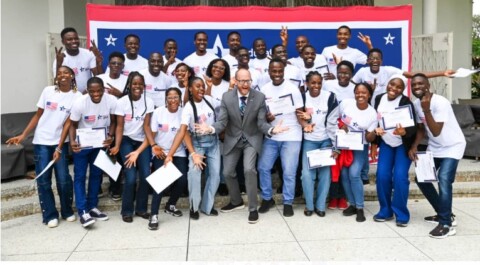The Tertiary Education Trust Fund (TETFund) has suspended its foreign scholarship programme for lecturers in public tertiary institutions, citing escalating costs and a growing trend of beneficiaries failing to return to Nigeria after their studies abroad.
Sonny Echono, Executive Secretary of TETFund, disclosed in an interview with TheCable that the programme had become financially unsustainable, particularly due to high foreign exchange rates and the financial burden of sponsoring scholars overseas. He revealed that in some instances, training a single scholar abroad cost the agency close to N100 million when converted from foreign currencies such as pounds and dollars.
“It’s a cost-benefit analysis. We are faced with two challenges. The first is the exchange rate differential. We have a situation where, because of the sharp drop in the value of the local currency, we have to provide a lot of naira cover to train a single scholar,” Echono said.
He described the situation as a “double tragedy,” noting that while lecturers enjoyed full sponsorship abroad, they continued to draw salaries from their institutions in Nigeria, which expected them to return and contribute to teaching and research.
“The second part is that many of the beneficiaries were not being kind to the country. They make us sponsor them, and when they finish their programmes, they refuse to come back,” he said. “Meanwhile, the school will be waiting for them here, expecting that they will return to impart the students.”
Echono explained that despite efforts to work with foreign institutions to discourage scholars from absconding, some beneficiaries found ways to remain overseas, either by moving between countries or temporarily going underground.
“We felt that it was no longer sustainable — the high costs and rate of abscondment,” he said.
However, he clarified that the suspension is not absolute. Waivers are still granted in exceptional cases where specific courses of study are unavailable in Nigerian universities. “The bridge we’ve created is that we are now allowing for some exceptions — in very exceptional cases — where the courses of study are not available locally. So, we give exemptions. It’s not an absolute suspension,” Echono said.
He cited the example of the aviation university, which recently received a waiver for certain specialised programmes not offered in the country. “For those, based on their merits, relevance to the national economy, and the fact that they are desirable for the institution, we grant those waivers,” he added.
Echono emphasised that instead of halting capacity development efforts, TETFund has redirected resources to support the local training of academic staff, which he described as more cost-effective and impactful.
“The majority of our scholars used to be from here. We have a local component, and we have the foreign component. So the local component has now received a boost because we have not reduced our funding for academic staff training; instead, we have increased it,” he said. “We are training more people now. And the numbers will increase further because for each person you send abroad, you can train between eight to ten locally for the same amount.”
TETFund officially suspended the foreign scholarship programme in November 2024.





